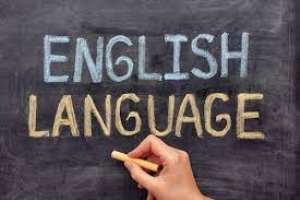
The English language undoubtedly has become a dominant language and a lingua franca in Ghana. As the official language for business transactions and academic work, the English language is studied as a compulsory subject in basic, secondary, and tertiary institutions in the country. In the market, lorry stations, and every local gathering, the urge to speak the English language is alive. Even during our local festivals and durbar, where we are expected to speak our local Ghanaian languages, we easily code-switch from the local languages to the English Language, sometimes unconsciously. The worrying trend is the relegation to the background and the seeming unpopularity of our local languages on the international scene because of the dominance of the English language.
The major local languages in Ghana, Ewe, Twi, Ga, and Hausa among others are spoken in some selected communities in the country. Whilst these languages depict our cultural heritage, their study in institutions of higher learning is comparatively low. Arguably, most students are not interested in studying these languages. However, the development of language demands constant research and study into the various aspects of the language. A study into the rules that govern the language, the letters, and the sounds of the language help to codify standard regulations that guide the structure and the usage of the language. These critical studies and research are missing when it comes to our local languages. Unlike the English language which has been studied and researched even in second language countries, our local languages are becoming only spoken languages without the required written study and development that will help develop them and perhaps make them acceptable internationally.
The need for a conscious effort towards reviving our local languages is at this time necessary. Language is an integral part of the culture. Our local languages are gradually dying out and stakeholders must as a matter of necessity and urgency make strategic efforts toward reviving them. The interest of students should also be revived in the study of the local languages. This will help develop the languages and bring them up to international standards. Like the English language, the local languages should be made compulsory at all levels of education in the country. We cannot be promoting the study of a foreign language to the detriment of our local languages. A lost language is a lost culture and a lost culture is a lost identity.
The call for the development of our local languages however is not synonymous with the call for the rejection of the English language. English has become a universal language that cannot be done without it. Whilst we must embrace the universality of the English language, we must be quick to help develop our local languages just like the English language. The debate about thought patterns and language and their influence on writing and speech demands that we pay critical attention to our local languages. The influence of language on society is enormous. It is for this reason that we must pay attention to the development of our local languages. The Bureau of Ghana languages and other similar state institutions, which were hitherto responsible for the development of Ghanaian languages should be retooled and resourced. This will be a step in the right direction towards the development of our local languages. The Ghana education service and the national commission for civic education among others have a critical role to play in this agenda. They should collaborate to design a national plan for the redevelopment of Ghanaian local languages.
The rich proverbs, wise sayings, and oral traditions which form part of our local languages should be an area open to scientific research. We must be at the forefront of this effort.
Benjamin Kwame Amankwa
Communication & Media Expert
Email; [email protected]




 Minority will expose the beneficial owners of SML, recover funds paid to company...
Minority will expose the beneficial owners of SML, recover funds paid to company...
 Prof. Opoku-Agyemang has ‘decapitated’ the NPP’s strategies; don’t take them ser...
Prof. Opoku-Agyemang has ‘decapitated’ the NPP’s strategies; don’t take them ser...
 Abubakar Tahiru: Ghanaian environmental activist sets world record by hugging 1,...
Abubakar Tahiru: Ghanaian environmental activist sets world record by hugging 1,...
 Prof. Naana Opoku-Agyemang will serve you with dignity, courage, and integrity a...
Prof. Naana Opoku-Agyemang will serve you with dignity, courage, and integrity a...
 Rectify salary anomalies to reduce tension and possible strike action in public ...
Rectify salary anomalies to reduce tension and possible strike action in public ...
 Stop all projects and fix ‘dumsor’ — Professor Charles Marfo to Akufo-Addo
Stop all projects and fix ‘dumsor’ — Professor Charles Marfo to Akufo-Addo
 Blue and white painted schools will attract dirt shortly – Kofi Asare
Blue and white painted schools will attract dirt shortly – Kofi Asare
 I endorse cost-sharing for free SHS, we should prioritise to know who can pay - ...
I endorse cost-sharing for free SHS, we should prioritise to know who can pay - ...
 See the four arsonists who petrol-bombed Labone-based CMG
See the four arsonists who petrol-bombed Labone-based CMG
 Mahama coming back because Akufo-Addo has failed, he hasn't performed more than ...
Mahama coming back because Akufo-Addo has failed, he hasn't performed more than ...
